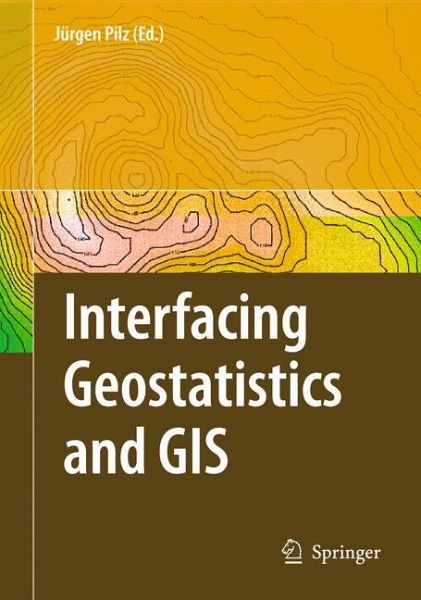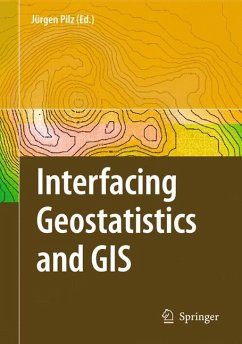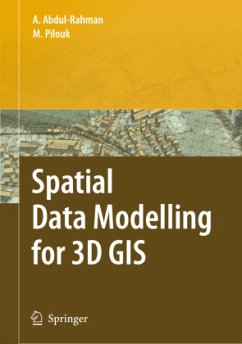
Interfacing Geostatstics and GIS

PAYBACK Punkte
57 °P sammeln!
Most of the papers contained in this volume grew out of presentations given attheInternational Workshop StatGIS03 InterfacingGeostatistics, GISand Spatial Data Bases, which was held in Pörtschach, Austria, Sept. 29 Oct. 1, 2003, and ensuing discussions, afterwards. Some of the papers are new and have not been given at the conference. Therefore, most of the papers should not be considered as conference proceedings in its original sense but rather moreasself-containedandactualcontributionstothethemeoftheconference, the interfacing between geostatistics, geoinformation systems and spatial data b...
Most of the papers contained in this volume grew out of presentations given attheInternational Workshop StatGIS03 InterfacingGeostatistics, GISand Spatial Data Bases, which was held in Pörtschach, Austria, Sept. 29 Oct. 1, 2003, and ensuing discussions, afterwards. Some of the papers are new and have not been given at the conference. Therefore, most of the papers should not be considered as conference proceedings in its original sense but rather moreasself-containedandactualcontributionstothethemeoftheconference, the interfacing between geostatistics, geoinformation systems and spatial data base management. Although some progress has been made toward interfacing, we still feel thatthereisonlylittleoverlapbetweenthedi?erentcommunities.Thepresent volume is intended to provide a bridge between specialists working in di?erent areas. According to the topics of the above mentioned workshop, this volume has been divided into three parts: Part I starts with general aspects of geostatistical model building (Pebesma) and then new methodological developments in geostatics are p- sented, in particular this pertains to neural networks (Parkin and Kanevski), Gibbs ?elds as used in statistical physics (Hristopulos). Furthermore, new - velopments in Bayesian spatial interpolation with skewed heavy-tailed data and new classi?cation methods based on wavelets (Hofer et al.) and support vector machines (Chaouch et al.) are presented.














